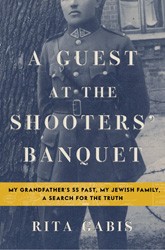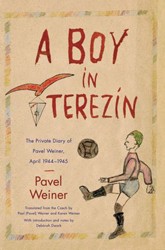Like many Jewish girls, Sara and her sister, Hannah, lived happily with their parents and extended family in a small Eastern European town (Shavel, Lithuania). Their pleasant life came to an end when the Russians invaded. Their first victims were Sara’s father and his brother, owners of a leather plant, “capitalists” in Russian eyes. With her father’s trial and subsequent two-year incarceration, Sara’s orderly life came to a close. Their home had to be shared with a Russian pilot and his wife. Sara’s other focus, her Hebrew school, also ended, with Hebrew forbidden and only Yiddish allowed. Resisting escaping to Russia due to her father’s earlier dire experiences with the Russians, the family, assuming the Germans to be a cultured people, awaited its destiny under a far worse occupation, that of the Third Reich.
In June, 1941, the Germans invaded Lithuania. It wasn’t long before the Jews were forced to wear the identifying badge, a Jewish star. Her father was again jailed, but this time, shot. The family and the rest of their town followed the deadly circuit of ghetto, cattle cars, and ultimately four different concentration camps. Miraculously, Sara, her mother, and her sister remained together. What finally separated the trio occurred toward the end of the Death March, which began in December 1944 with a thousand women and ended in January 1945 with fewer than three hundred. How Sara attempted to get food for her starving family, an attempt which ultimately resulted in her separation from them, is contained in a dramatically written passage of this memoir.
She was rescued by a group of British prisoners-of-war, their own safety precarious at best, who chanced all to save a half dead, scarcely human Jewish teenager — someone who resembled little more than refuse in a barn, where they found her when she fled from the police. The author’s portrayal of her sojourn with the soldiers and in local homes where they placed her is spell-binding, while her description of life under the Russian “liberators” is contrary to everything Sara expected — not safety and a warm welcome, but attempted rape and brutality instead.
After a brief return to Lithuania, Sara emigrated to the United States, where she became Hannah, in tribute to her sister and the six million Jews who did not survive. She has been active in politics, in the struggle for Soviet Jewry, and in many educational and philanthropic endeavors.
This is a book to read for its writing, sensitivity, adventure, and graceful message. It is a welcome addition to the broad range of the Jewish ouvre, not limited to Holocaust and memoir.



